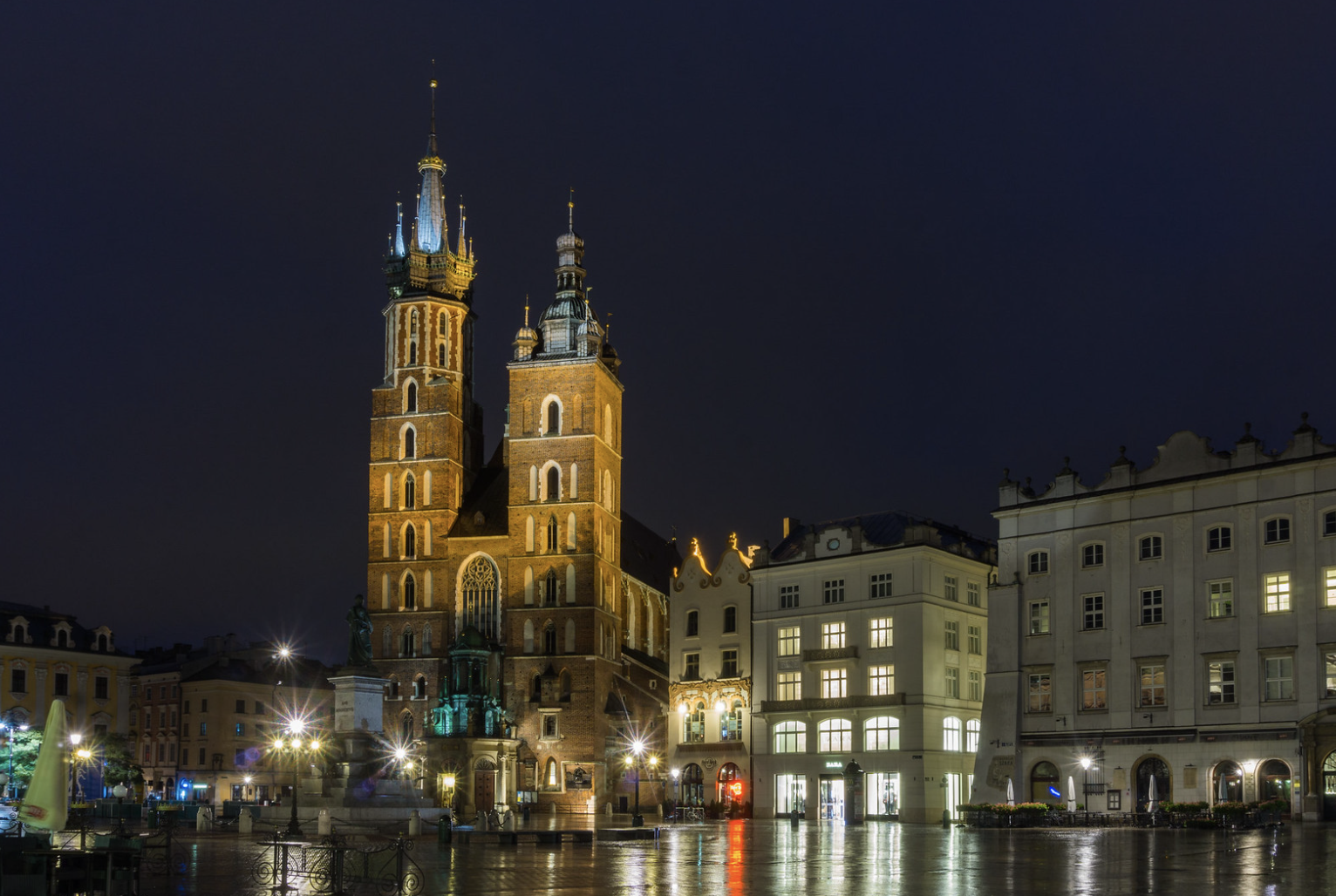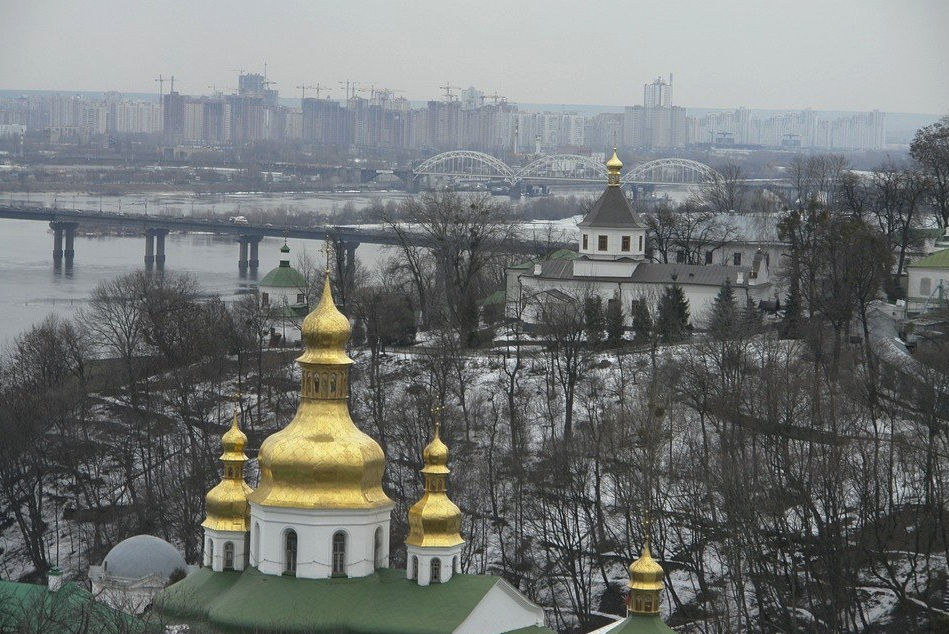News
Poland Helped Other East European Nations Win their Freedom, Showing History and Geography are not Destiny
Solidarity was created in August 1980, the first independent trade union to be recognised by a state behind the Iron Curtain. Solidarity's victory precipitated the fall of the Berlin Wall and widespread political and economic change across the Soviet-controlled East bloc.

The Charles Bronson walrus moustache is still there, if now silver-grey.
He is wearing a purple sweater with Polish words which he translates as “Constitution, Yes” emblazoned across the front. Situated on the second floor of the European Solidarity Centre, the giant green cranes of the Gdańsk shipyard, where he once worked as an electrician, loom in the window behind his desk.
Solidarity was created in August 1980, the first independent trade union to be recognised by a state behind the Iron Curtain. In December 1981 martial law was imposed by General Wojciech Jaruzelski during which many of Solidarity's leaders were detained for long periods, forcing the union underground. By the end of that decade, roundtable talks between the government and the opposition led by Solidarity led to democratic elections in Poland in 1989, the first in the country in nearly 40 years.
Solidarity's leader, Lech Wałesa, who received the Nobel Peace Prize in 1983, was elected president of Poland in 1990. He is not exaggerating when he says: “By knocking the teeth out of the Soviet bear, we helped other nations win their freedom.”
Solidarity's victory precipitated the fall of the Berlin Wall and widespread political and economic change across the Soviet-controlled East bloc.
Since 1990, the per capita income of Poles has risen from $1,720 to $15,720 by 2020, or from 40% to 143% of average global GDP.
“I am most proud,” says Walesa, “of the fact that I was able to achieve the transition from the bad, Putin-like era, to the new brave one.”
But this spectacular transition has not been without pain, including in his hometown, where the long-term effects are still being felt in Polish politics.
The Gdańsk Lenin Shipyard employed 16,000 at its peak. Today it is down to around 1,500, with several thousand more subcontractors, depending on demand.
“Solutions at the time were so different,” reflects Walesa, “that to get across from one era to another, I had to destroy a lot in order to be able to create something new.”
He explains further, “The Soviet Union was importing 70% of Polish exports. We had dissolved the Soviet Union and we lost that market. Which country could survive such a shock? It's very easy to go from capitalism to communism; you just have to redistribute and give it to others. It is easy to make a fish soup out of an aquarium. But the other way round, from communism to capitalism,” he smiles, “you have to create a fishpond out of a soup.” This is not easy at all, he says, “but we are succeeding”.
Change was not only painful, but placed a premium on speed and decisiveness.
Leszek Balcerowicz became minister of finance in the first non-communist government in 1989. Armed with an MBA from New York, he went from working at the Institute of Marxism-Leninism to Solidarity by the early 1980s. Widely credited for steering the free-market reforms that set Poland on its path as a success story, he has since served as chairman of the National Bank of Poland and twice as deputy prime minister of Poland.
In 1988 he was, he says, a 41-year-old economics professor “with a hobby of economic reform. We all thought,” he reflects from the Warsaw School of Economics, “that Poland would persist as it was. However, the basic conclusion we reached was that economic liberalisation matters for results from reform; the variable is whether the political regime allows the necessary reforms to happen. Without political liberalisation there could be no changing the economic structure.
“When I was asked by the prime minister in 1989 to take over the reform project, I was on my way to take over a visiting post in the UK.” He assembled a team of 10 people, which enabled him to “take a radical and risky approach”.
His group took over “the commanding heights” of the economy, starting the project in September 1989 amid hyperinflation and falling production. With a deadline of 1 January 1990, the team produced a 10-step plan “which sought to answer two basic questions: what are your targets, and what is your model?
“The first was clear. We had been diverging from the West for years. We needed to catch up. That could only happen through faster economic growth, and that demanded open markets, moderate taxation, and private investment. To do this, we needed to be very fast and move on a broad front.”
Balcerowicz and his team realised that they could use the political moment to their advantage. “We also relied on psychology, never believing that Homo sovieticus would not change and that incentives could work.
”In his “shock therapy”, prices of consumer goods were freed, state-sector wages were frozen, the zloty was made convertible, and state-owned enterprises sold via a voucher system. “We had to innovate with vouchers since we lacked the developed capital markets,” notes Balcerowicz.
Now, he reflects, he would change some things faster, such as the inherited welfare system. “We should also have done a flat tax quicker.” He reminds that, “the speed of change in Poland in the 1980s and 1990s was very fast… we had to learn on the job. The politics were that reforms were easier.”
Still, whatever the Monday morning quarterbacking, Poland “enjoyed the best period in our history because for the first time we began to adapt the Western model of competitive elections, the rule of law, and market economics. This has resulted in us converging with the West for the first time in our history.”
Poland's political shift rightwards over the past decade has in part been, paradoxically, a reaction to this success. This is a result of a combination of factors, including the extent of the “left-behinds” in the rural areas who have not benefited as much from Poland's successful insertion in global value chains, perceived threats to nationalist cultural identity from global influences, and a lack of trust in democracy stemming from the mistakes made by the centrist Civic Platform.
This propelled a right-wing coalition, led by the Law and Justice Party, to power. (Note to readers: be sceptical of parties with “Law” or “Justice” in their title, just as one should not take seriously countries with “Democratic” in their name.)

As a consequence, says Balcerowicz, Poland's policies have moved to be “gradually anti-growth”, with the renationalisation of banks and a growing state sector. Redistribution — through an expanded welfare payments system and “rewards for politicians in lucrative posts” — has become the preferred method of ensuring support. If that doesn't sound familiar, then perhaps “reductions in economic freedom, increases in taxes, and more restrictions” might resonate. Balcerowicz says that the main culprit of all of this “is the prime minister [Mateusz Morawiecki]”, whom he terms “not even a clever liar”, presiding over “poor intellectualism and moral decline”.
“Yet,” adds the wiry professor, his stature hinting at his past as a successful middle-distance runner, “we are not yet Argentina, even though the budget deficit is climbing and inflation is the second-highest in Europe.” He believes that the system will, however, self-correct, with increase in support for the liberal opposition, though he warns against “Ukraine being used as pseudo-patriotic propaganda” by the ruling party. Even though there may be parallels with Putin's manipulation of the political system to his advantage, Balcerowicz laughs: “Don't forget that dictators can hate each other.”
If anything, the crisis will probably, in the view of Marek Madej of the University of Warsaw, ensure consolidation of Poland's position in the European Union, the institution long a whipping-boy of the current government.
Whatever the challenges, and political twists and turns, Poland has enjoyed an extraordinary economic transformation. By comparison, over the same 30-year post-Cold War period, South Africa's share of global per capita income has fallen from 64% to 52%.
Despite the absence of a state for 123 years until 1918, the horror of World War 2 when it lost 85% of its capital and a third of its population, and the trauma of the Soviet period, since 1990 Poland has become a normal country, and quickly. In so doing it has proven three things:
- It is possible to overcome bad geography.
- No matter how traumatic and devastating, history is thus not necessarily destiny.
- Democracy is not just about the ends, even though it provides the tool to ensure the rule of law, efficient government, fairness, freedoms and rights including sound governance and development.
Poland's success, as with that of the Czech Republic, the Baltic states and other former Warsaw Pact countries, reminds Russia, too, of the failure of its alternative.
“If there was not the success of Poland in the 1990s,” observes Piotr Lukasiewicz, a former soldier turned ambassador, “there would be no [concept of] nation-building today. Poland is testament to change being possible when the system changes.”
This is quite a different model that Vladimir Putin presumably had in mind when he said that the collapse of the Soviet empire “was the greatest geopolitical catastrophe of the century”. Putin has tried to remedy this by building a new power structure with himself at the apex, surrounded and protected by oligarchs drawn from his KGB colleagues.
And yet Poland is a reminder to those Soviets who would like to turn the clock back, including presumably Putin, that there is another, better way. In so doing, it serves as a reminder to others wistfully looking at the simplicity of the past, of the ways of East and West, that ideology should be dead.
This article originally appeared on the Daily Maverick
Photo: barnyz Flickr


